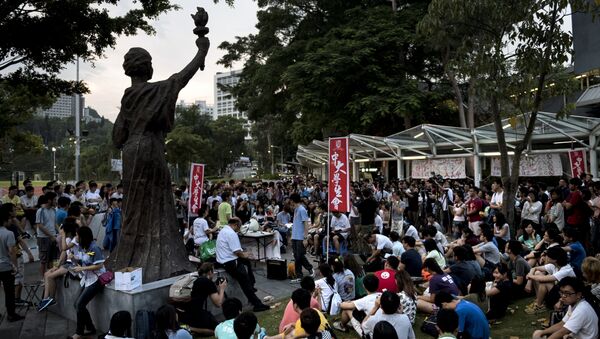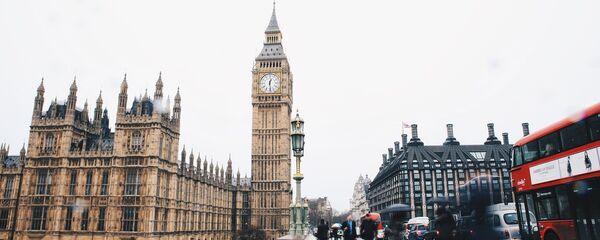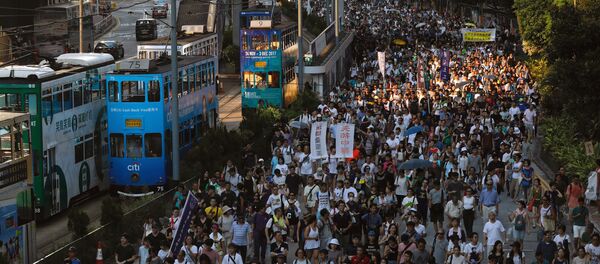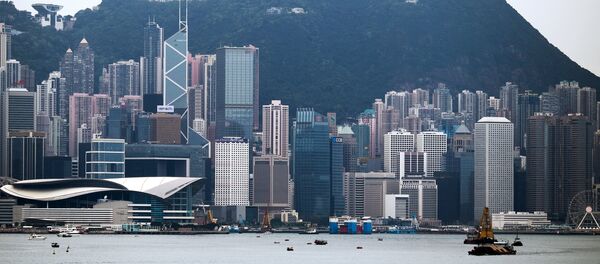During the Hong Kong-Bahrain game at Mong Kok stadium, hundreds of the estimated 2,400 fans in attendance banged drums and waved banners adorned with slogans such as "Die for Hong Kong." When the national anthem of China began to play, the Hong Kong fans booed and jeered, some of them keeping their seats and others refusing to stand altogether.
For the national anthem of Bahrain, meanwhile, virtually all the fans stood. Hong Kong lost the game, 2-0.
The protest underscores long-standing tensions between China and Hong Kong, which was part of the British Empire for 155 years following its surrender at the end of the First Opium War, before rejoining China as a special administrative region (SAR) in 1997.
As part of the agreement, Hong Kong (and Macau, which had a similar arrangement with Portugal) have total autonomy in matters of law, immigration, finance and extradition. China has control over its SAR's diplomatic relations and defense — and some cultural aspects, such as the use of Mandarin over Cantonese in public schools and broadcasts of the national anthem.
On Saturday, Beijing strengthened punishments for those who disrespect the anthem, with three years in prison as the maximum penalty. Hong Kong's legislative council must now adopt its own laws on the matter, but they have the freedom to set a different jail sentence or looser enforcement. Carrie Lam, the chief executive of Hong Kong, said that she'd like to see the law in effect in 2018 — but it wouldn't apply retroactively, meaning offenders like those at the Thursday game wouldn't be punished.
The protesters came out against this — Hong Kong, a capitalist democracy whose government models itself in many regards after that of Mother England, has often chafed under the implementation of more authoritarian or socialist mainland policies.
"It contradicts Hong Kong's conventional sense of freedom of expression," said Claudia Mo, an MP who will vote on the Hong Kong version of the law. "It's designed to scare Hong Kongers into obedience. The government is very good at using judicial means to intimidate activists these days."
"Every Hong Kong person should have the right to sing the national anthem or not sing it," added Roy Tam, a member of the pro-democracy Neo-Democrat party. "Or to jeer it. This is a part of the core freedoms of Hong Kong. We don't agree with the transplanting of China's ideology here."
But other Hong Kongers came out in support of the ban. "The purpose of the law is to remind people to respect our country and our national anthem. It's very simple, it's not directed at limiting freedom of speech," Holden Chow, a pro-Beijing MP, told The Guardian. "There must be behavior and an intention to commit a crime, so people will not be arrested for accidentally doing something that disrespects the anthem."
In 2014, tens of thousands of Hong Kongers took to the streets to protest Beijing's influence over the Hong Kong government in what would come to be called the Umbrella Revolution. The movement failed to achieve its stated goal of election reform.
Earlier in 2017, the Asian Football Confederation, the regulatory body for soccer in Asia and Oceania, warned the Hong Kong Football Association that the teams might be punished if the fans continue to misbehave during games.






